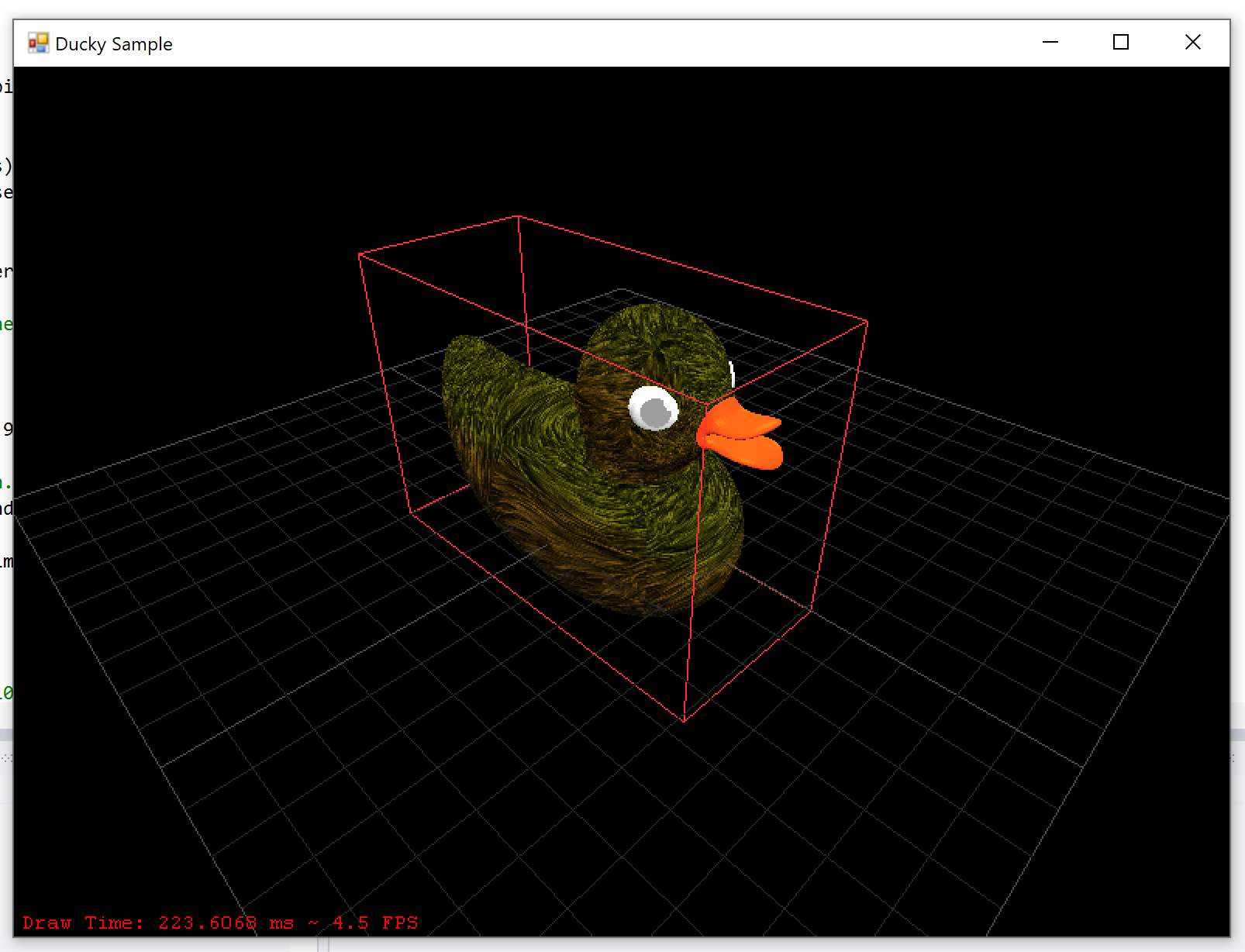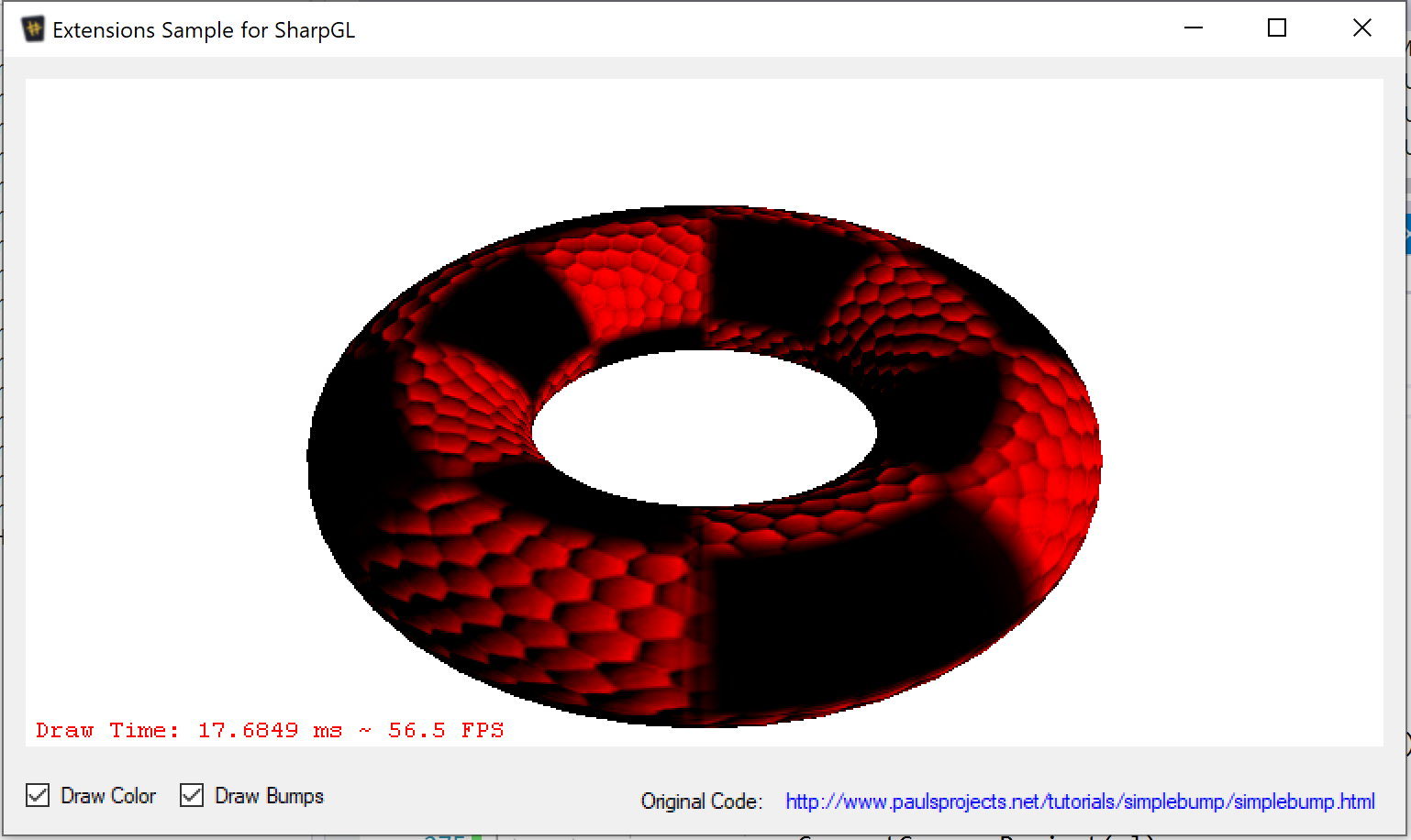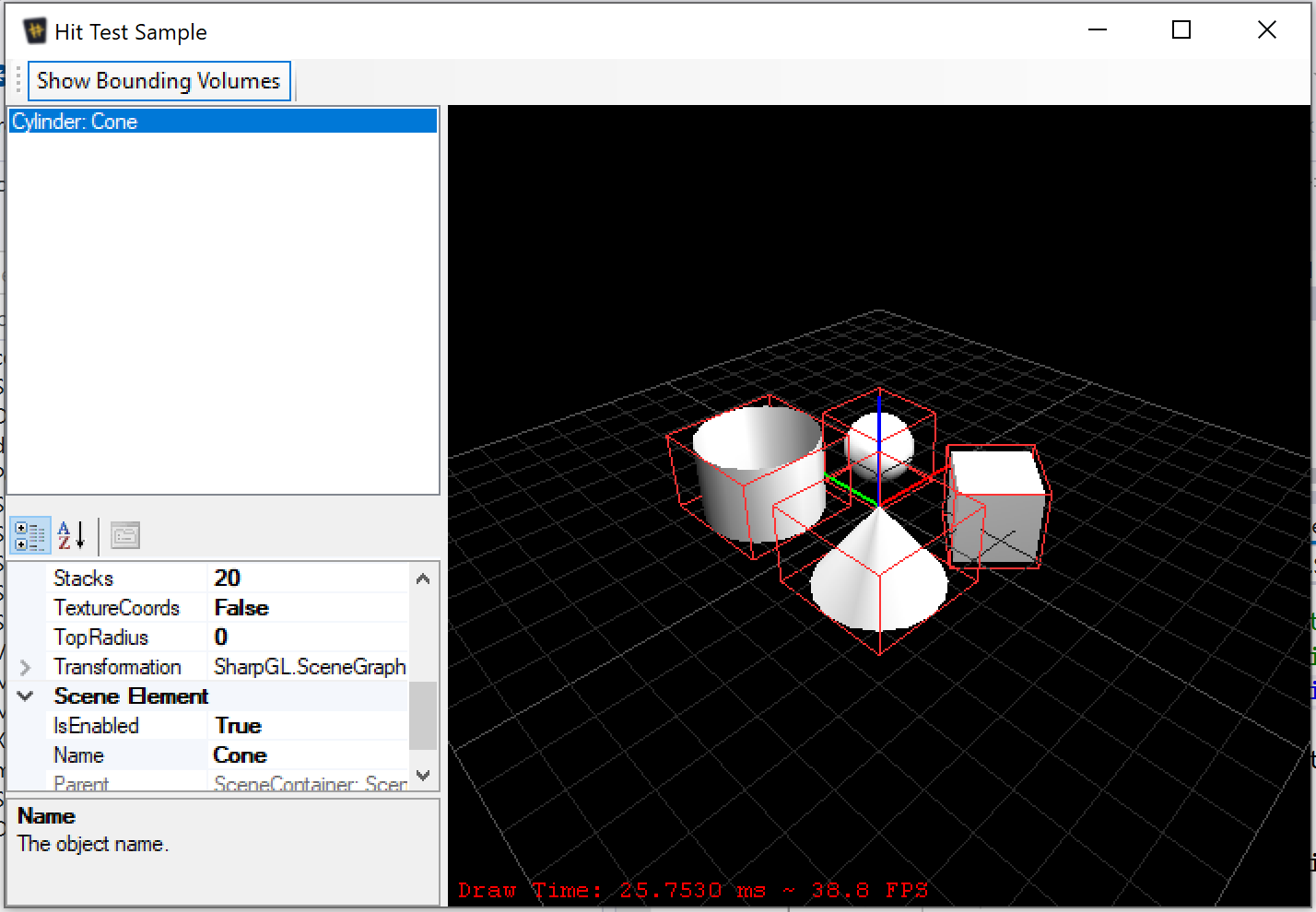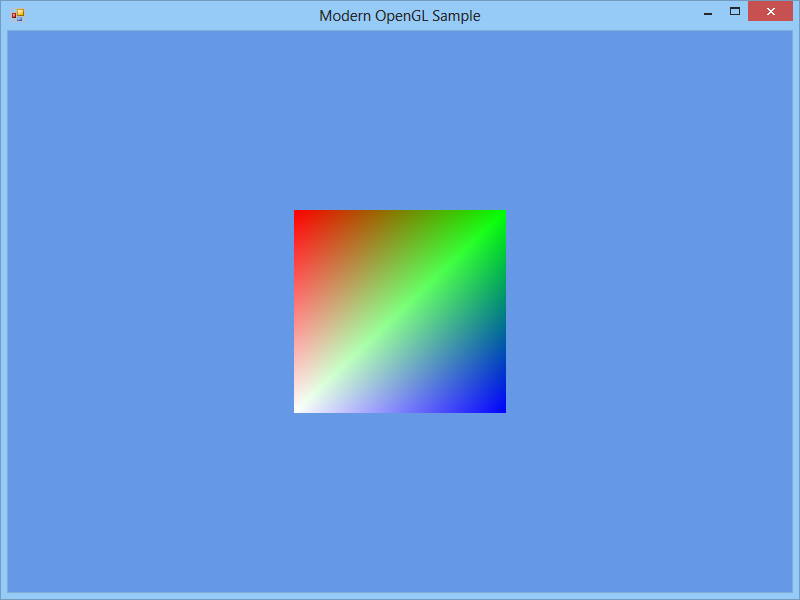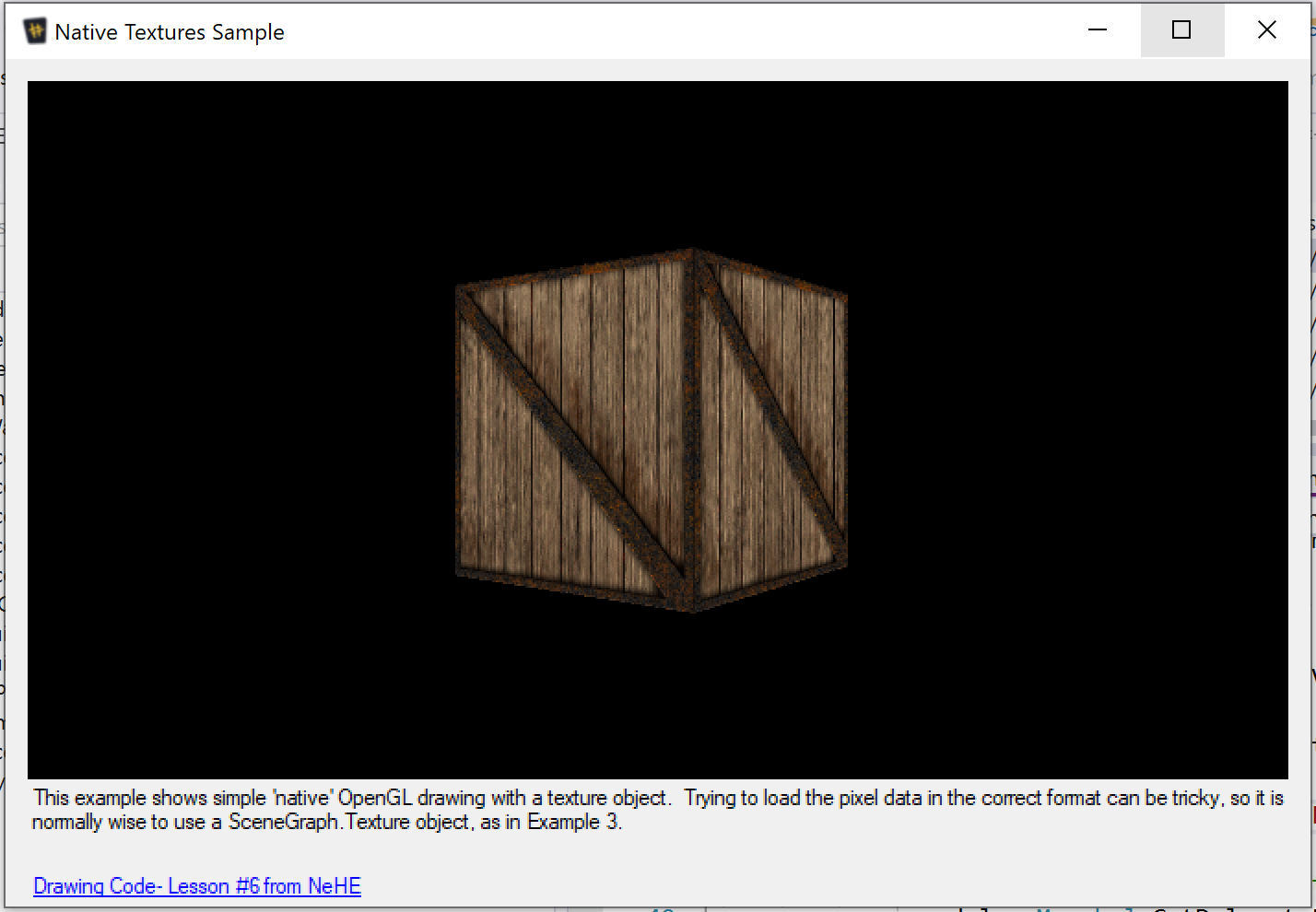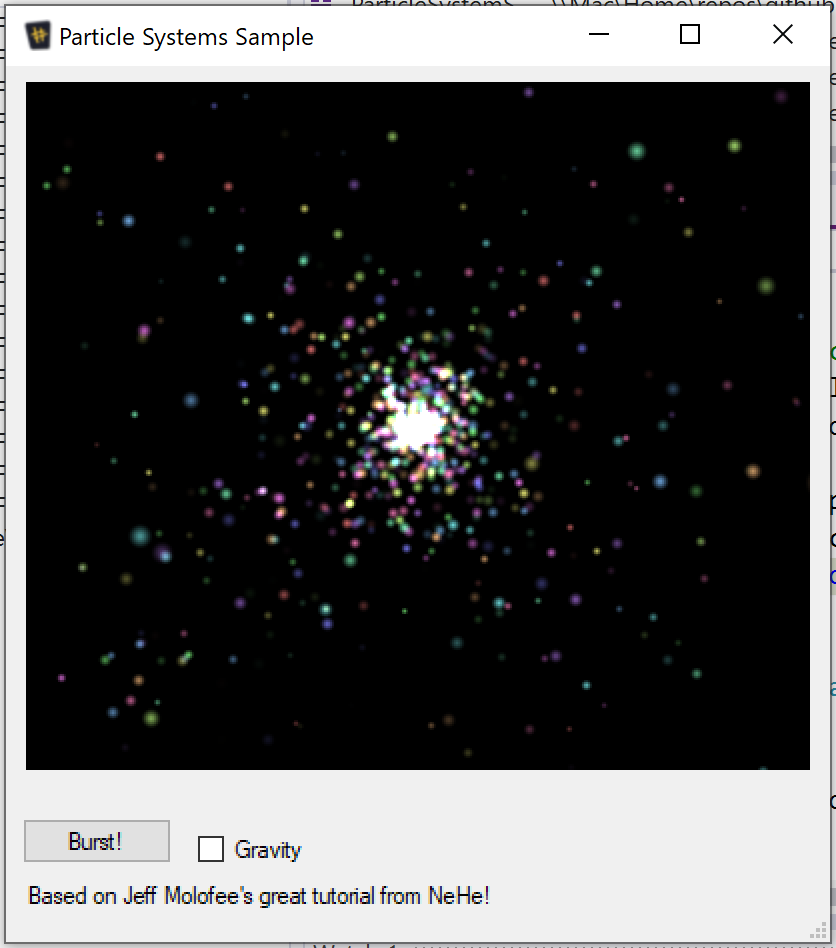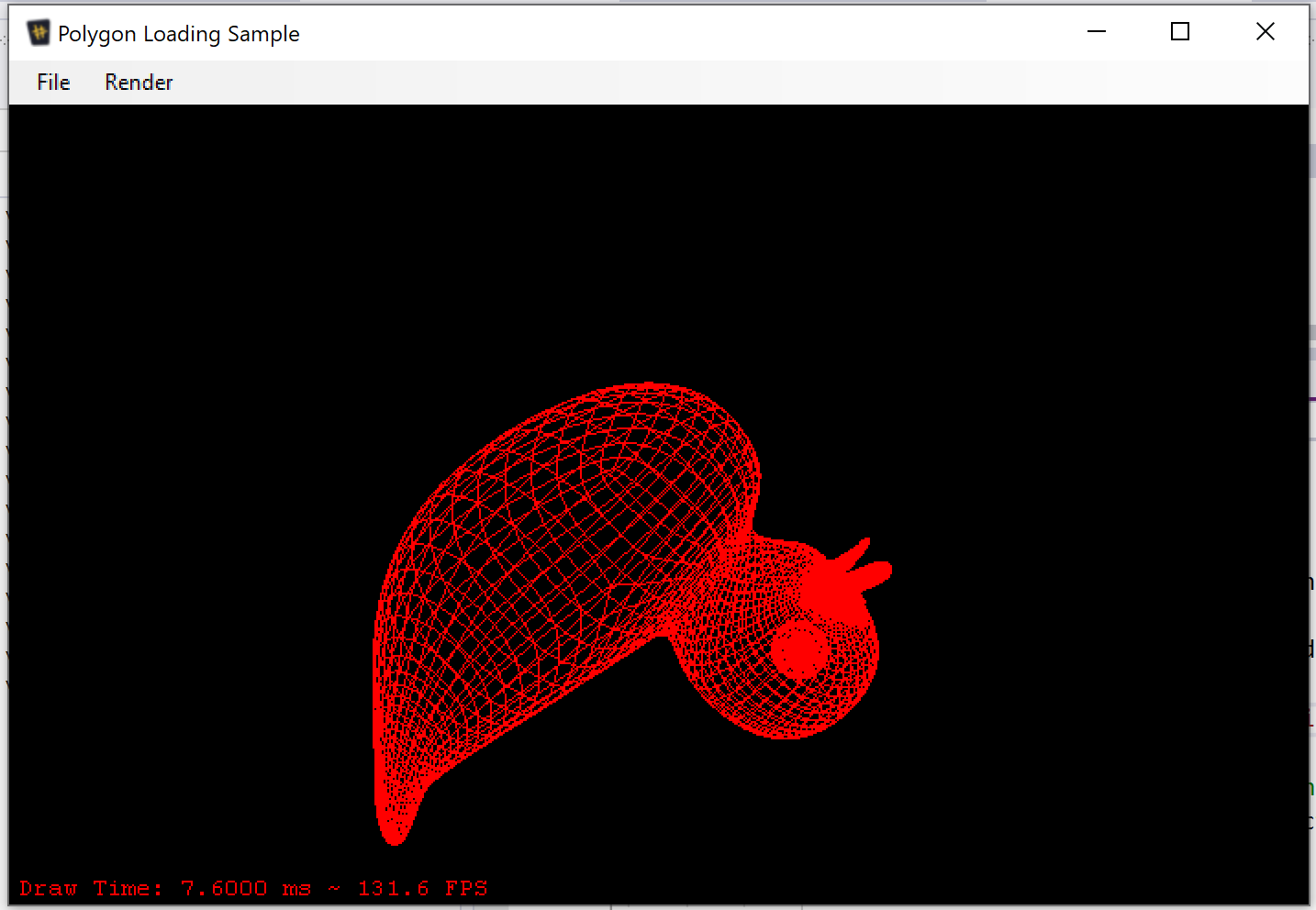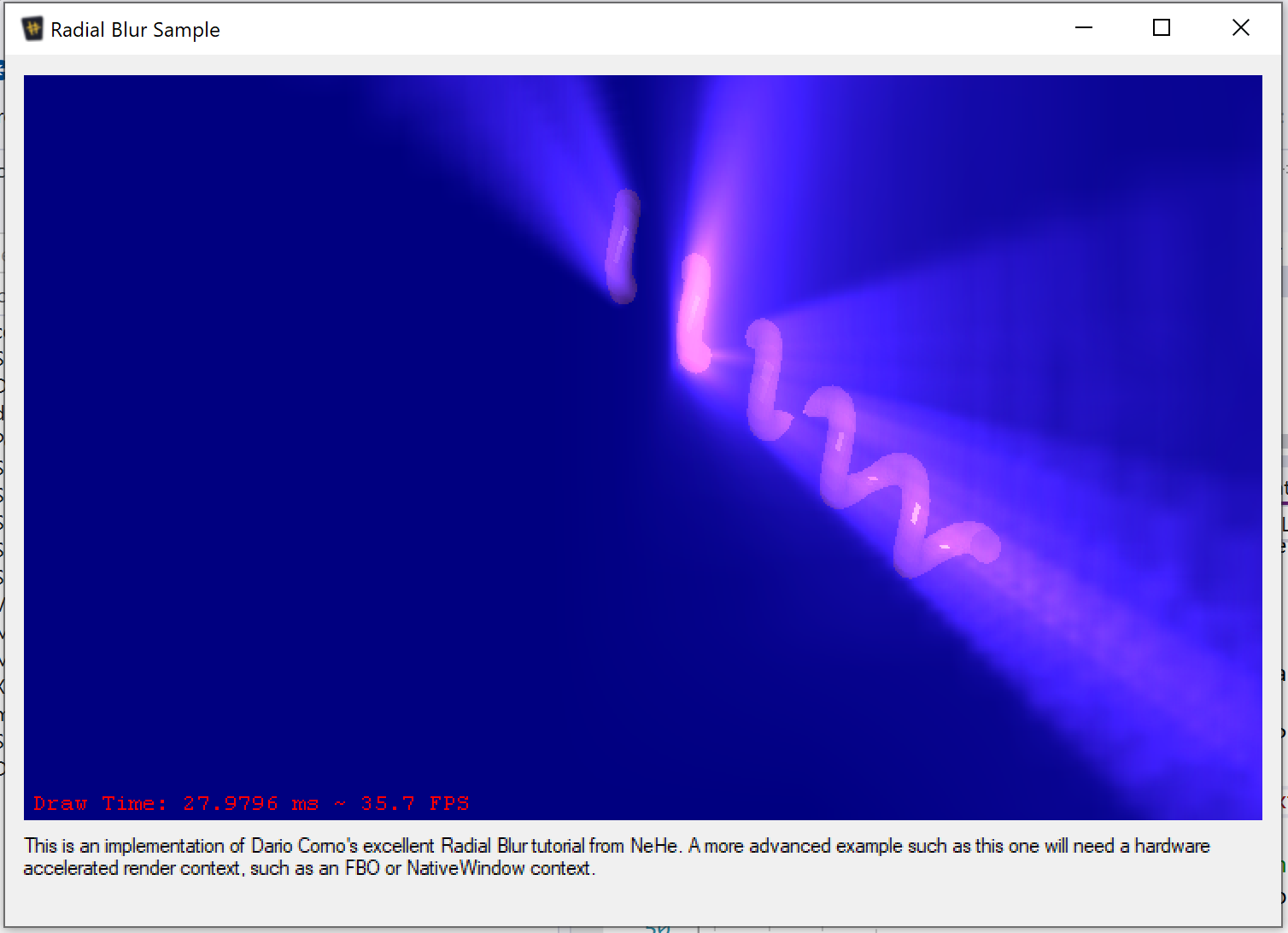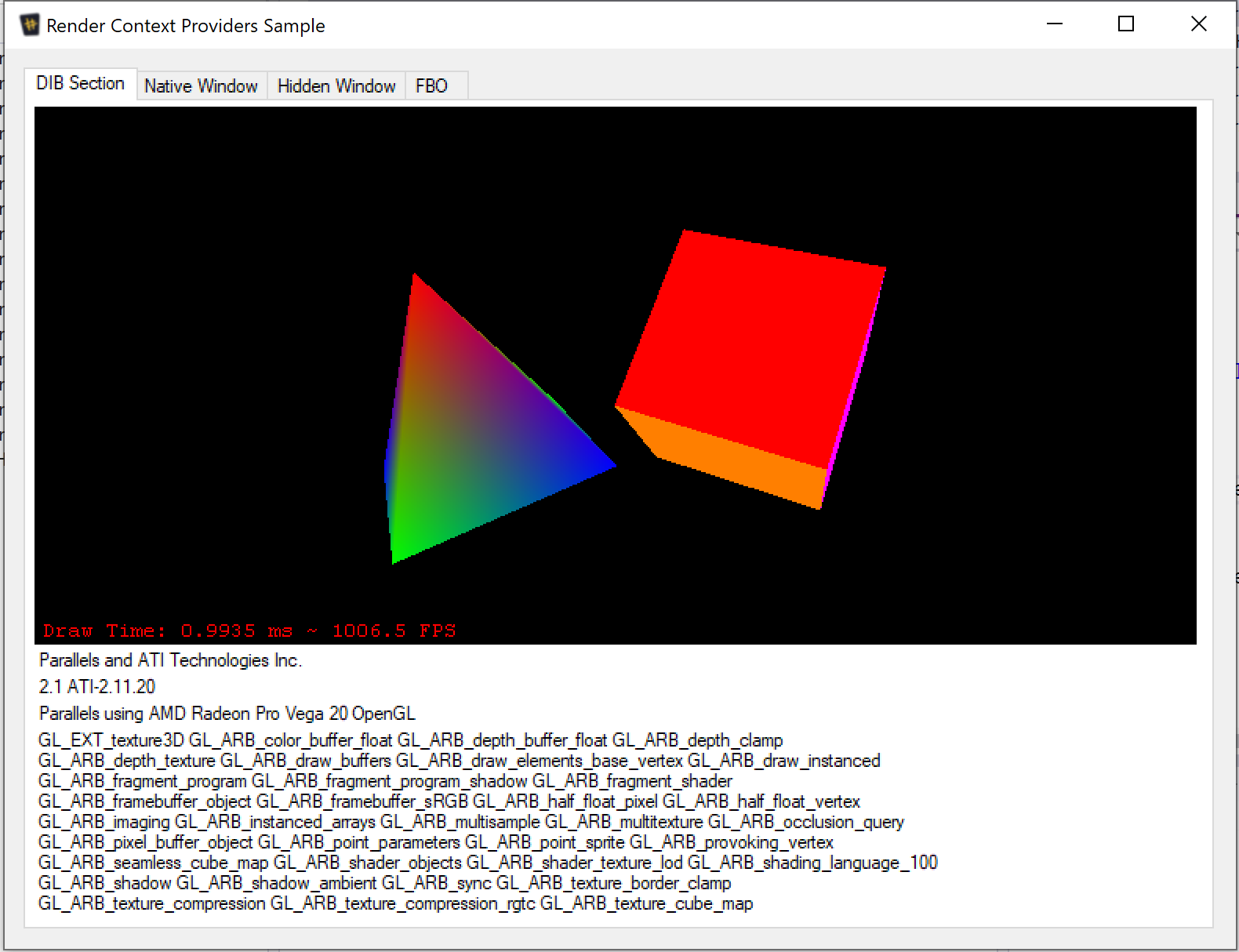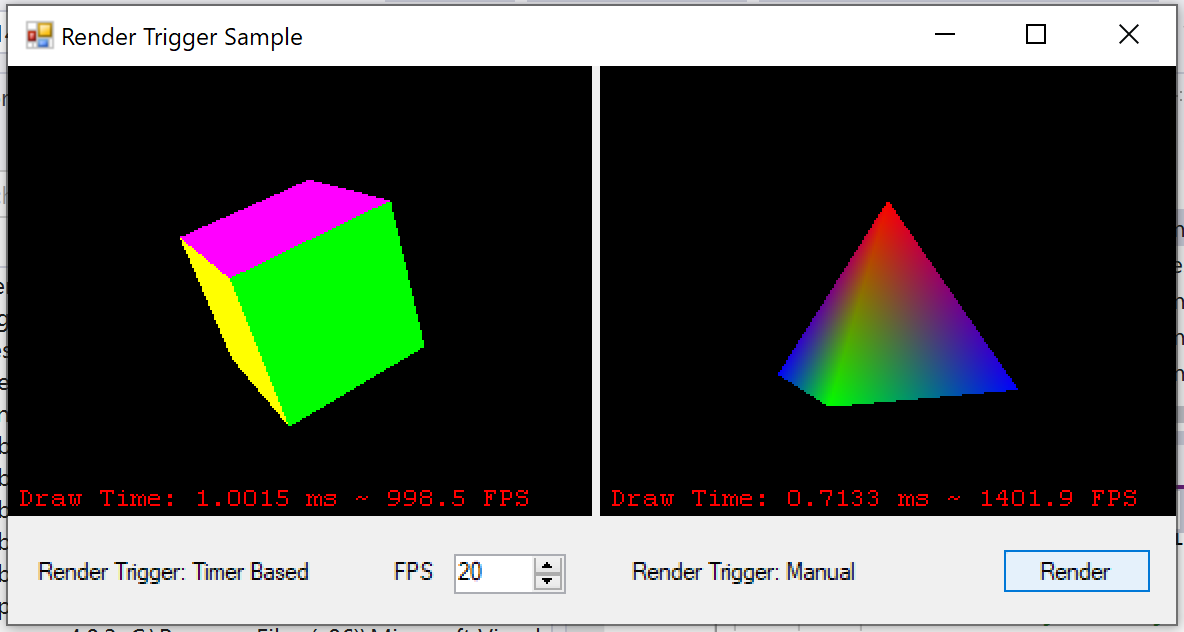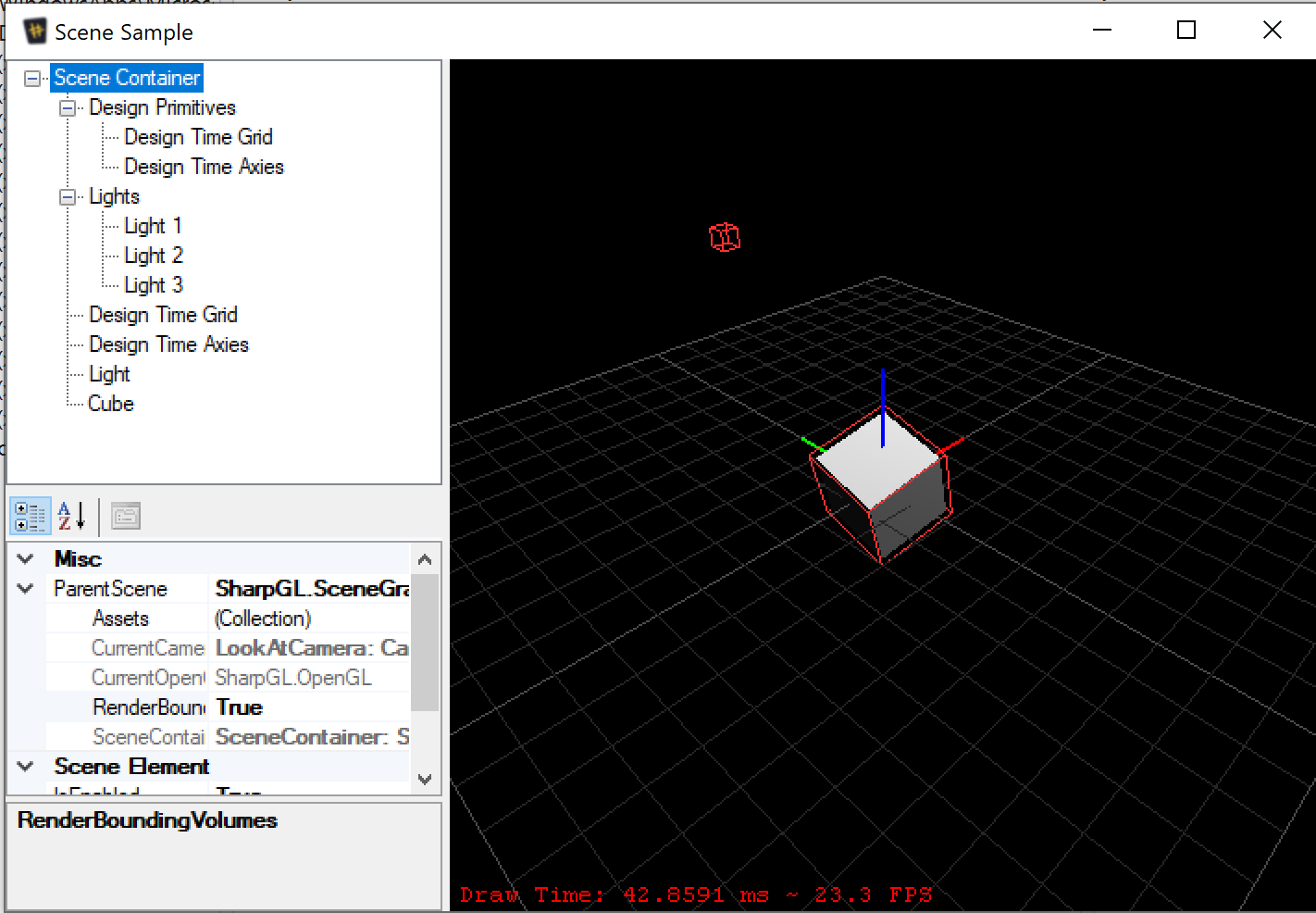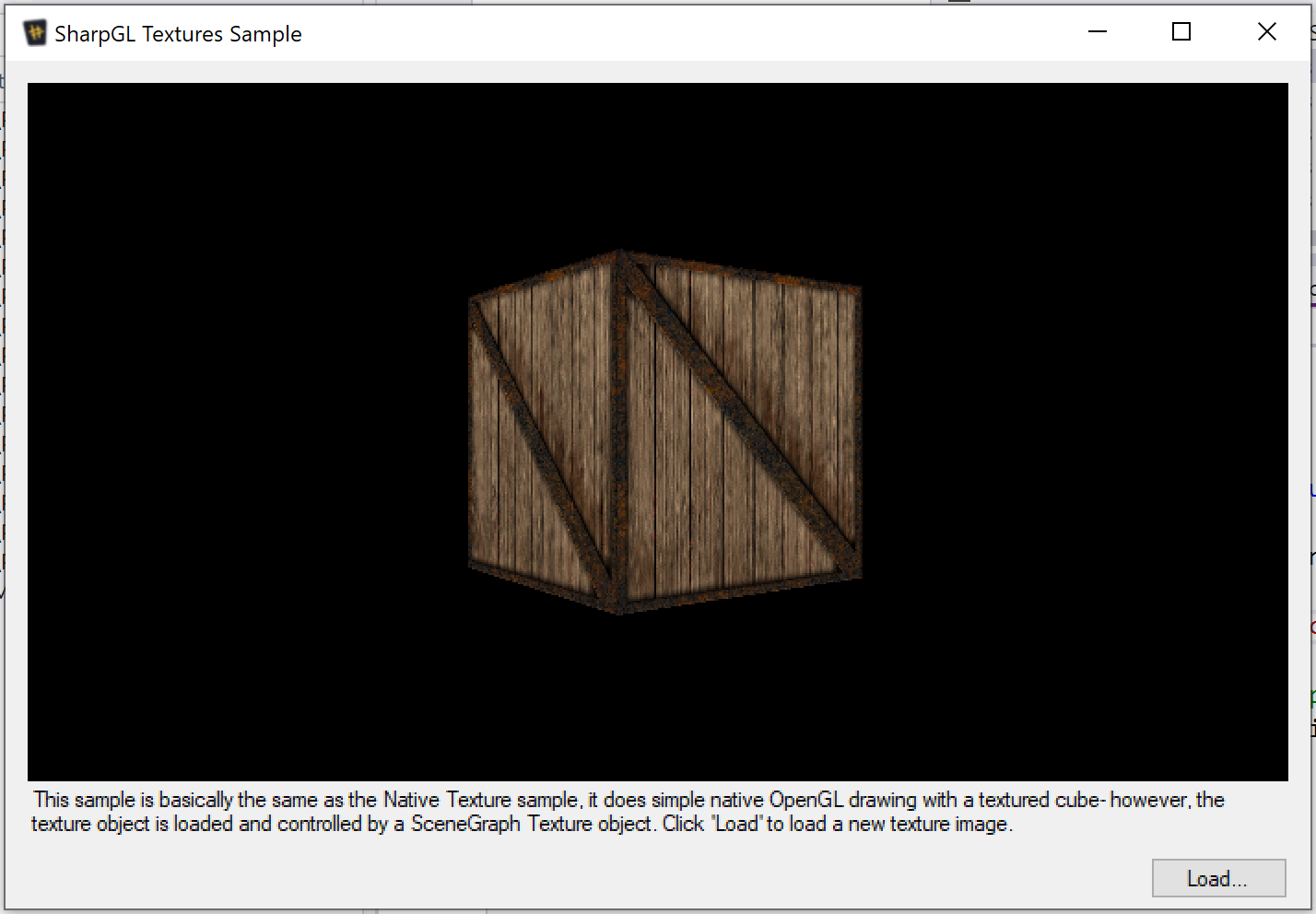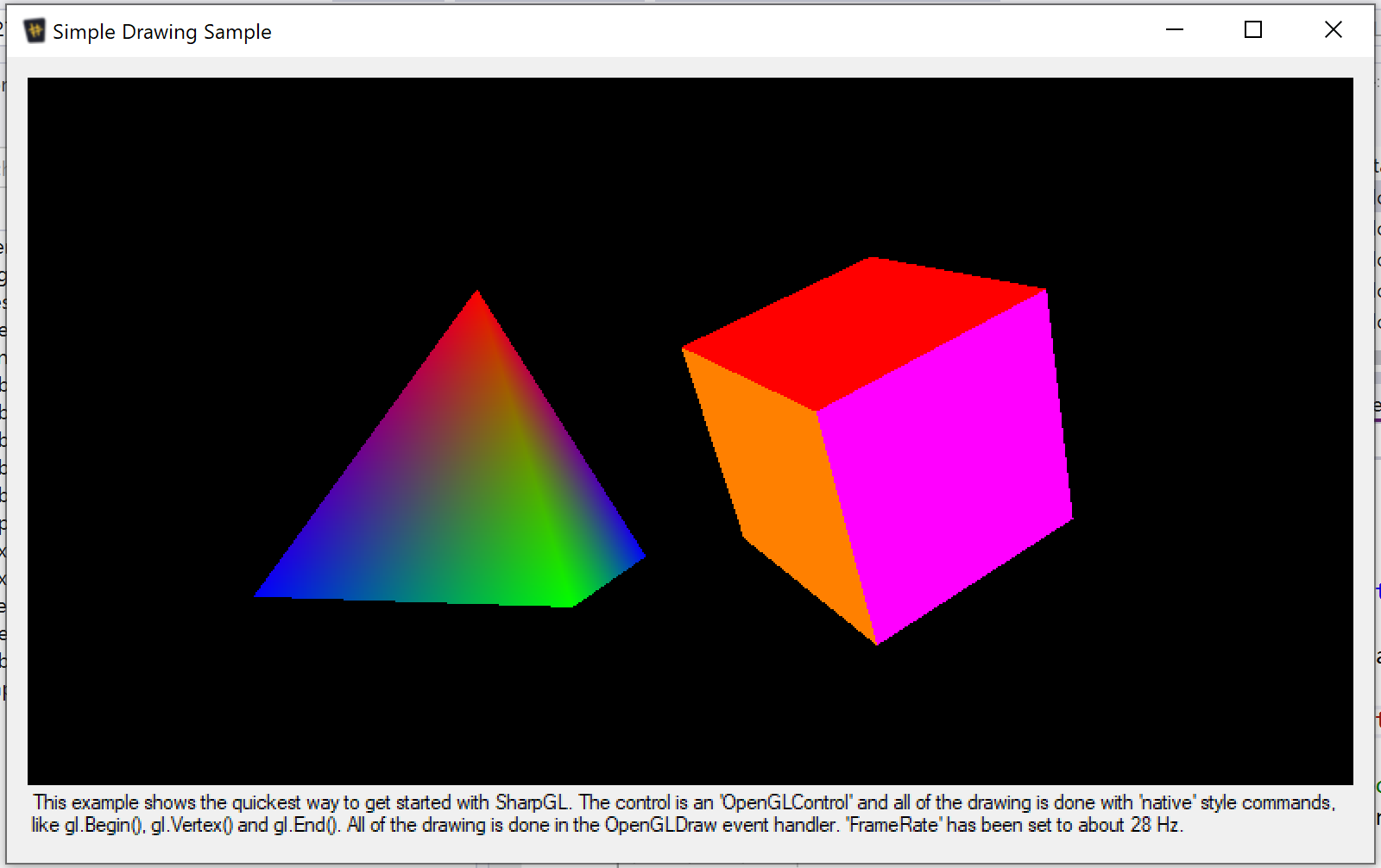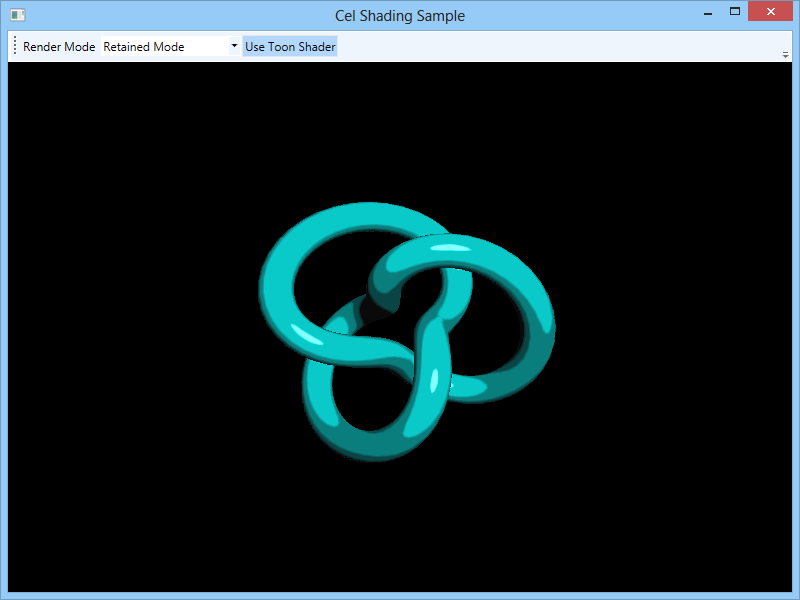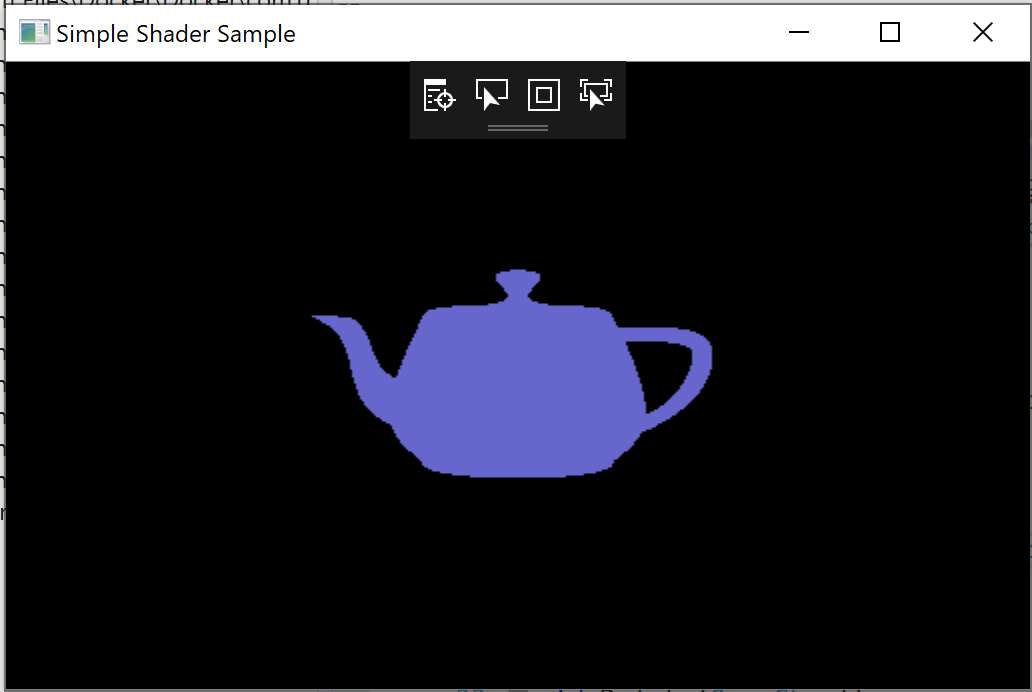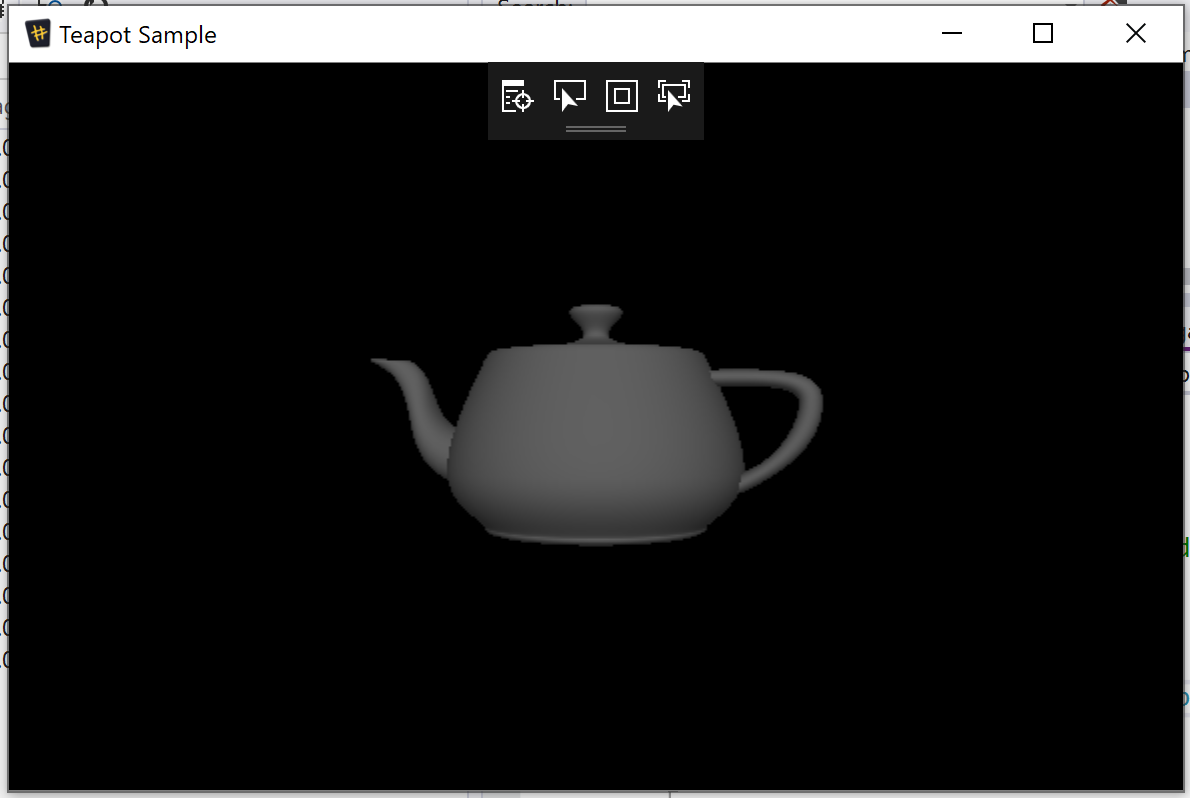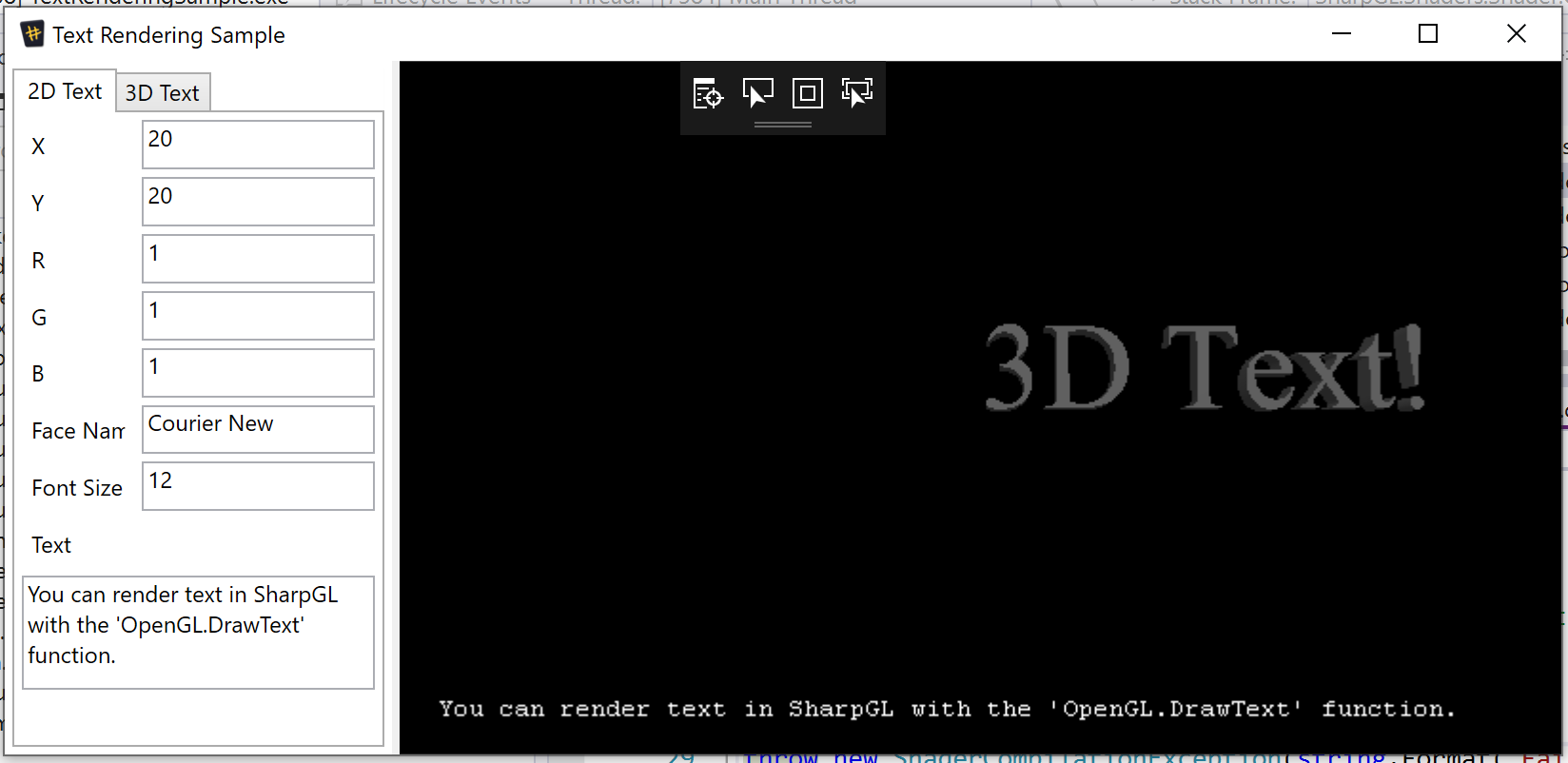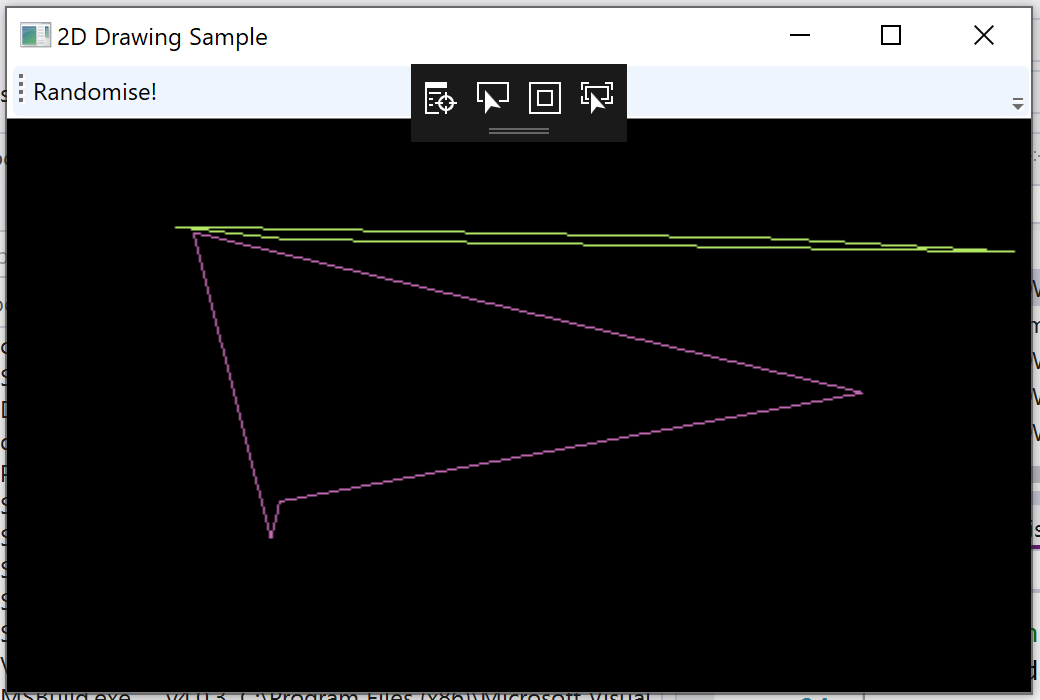Unlock the power of OpenGL in any .NET application. SharpGL wraps all modern OpenGL features, provides helpful wrappers for advanced objects like Vertex Buffer Arrays and shaders, as well as offering a powerful Scene Graph and utility library to help you build your projects.
Check out the Samples, they're a great place to start learning how to use SharpGL.
- Getting Started
- Developer Guide
- Sample Applications
- WinForms - Ducky Sample
- WinForms - Extensions Sample
- WinForms - Hit Test Sample
- WinForms - Modern OpenGL Sample
- WinForms - Native Textures Sample
- WinForms - Particle Systems Sample
- WinForms - Polygon Loading
- WinForms - Radial Blue
- WinForms - Render Contexts Sample
- WinForms - Render Trigger Sample
- WinForms - Scene Sample
- WinForms - SharpGL Textures Sample
- WinForms - Simple Drawing Sample
- WPF - Cel Shading Sample
- WPF - Drawing Mechanisms Sample
- WPF - FastGL
- WPF - Object Loading Sample
- WPF - Simple Shader Sample
- WPF - Tea Pot Sample
- WPF - Text Rendering Sample
- WPF - Two Dimensional Rendering Sample
- Documentation
- SharpGL Visual Studio Extensions
- Credits, Sponsorship & Thanks
- Built with SharpGL
SharpGL is made up of a number of packages, you can install whichever package or packages you need!
Install SharpGL packages with NuGet, either by using the Package Explorer or the Package Manager tool, e.g:
PM> Install-Package SharpGL
SharpGL has built in support for OpenGL support, newer functions can be loaded on demand as needed. The table below shows the compatibility across frameworks and platforms.
OpenGL
Currently SharpGL has built in bindings for OpenGL 4.0 - functions from later versions can be loaded at runtime as needed.
Framework Compatibility
All components support the .NET Framework 4.0 onwards, .NET Core 3.0 onwards and .NET Standard 2.1 onwards. Some components also support earlier versions.
| Component | .NET Framework | .NET Core | .NET Standard |
|---|---|---|---|
SharpGL |
4.0+ | 2.0+ | 2.0+ |
SharpGL.SceneGraph |
4.0+ | 2.0+ | 2.0+ |
SharpGL.Serialization |
4.0+ | 2.0+ | 2.0+ |
SharpGL.WinForms |
4.0+ | 3.0+ | 2.1+ |
SharpGL.WPF |
4.0+ | 3.0+ | 2.1+ |
Platform Comptability
Compatability across platforms is supported via framework specific components.
| Platform | Support |
|---|---|
| WinForms on Microsoft Windows | ✅ via SharpGL.WinForms |
| WPF on Microsoft Windows | ✅ via SharpGL.WPF |
| UWP on Microsoft Windows | ❌ Work in Progress |
| Xamarin on Microsoft Windows | ❌ Work in Progress |
| Xamarin on MacOS | ❌ Work in Progress |
| Xamarin on Linux | ❌ Work in Progress |
Legacy Versions
The Visual Studio 2017 version of the codebase, which supports the .NET Framework only, is available on the release/2.x branch. However, this branch will not be maintained going forwards. The current mainline still supports the .NET Framework.
To build the code, clone the repo and open the SharpGL, Samples or Tools solution. The Extensions solution is used for the Visual Studio Project Templates and requires additional components - you can find out more on the Wiki on the 'Developing SharpGL' page.
You can also use the following scripts to run the processes:
| Script | Notes |
|---|---|
config.ps1 |
Ensure your machine can run builds by installing necessary components such as nunit. Should only need to be run once. |
build.ps1 |
Build all solutions. Ensures that we build both 32/64 bit versions of native components. |
test.ps1 |
Run all tests, including those in samples. |
coverage.ps1 |
Create a coverage report. Reports are written to ./artifacts/coverage |
pack.ps1 |
Create all of the SharpGL NuGet packages, which are copied to ./artifacts/packages. |
These scripts will generate various artifacts which may be useful to review:
artifacts\
\tests # NUnit Test Reports
\coverage # Coverage Reports
\packages # NuGet Packages
To make and publish a release:
- Update the
*.csprojfiles with the new version number - Create the version tag (e.g.
git tag v3.2.1) - Push the code and tags (e.g.
git push --follow-tags)
AppVeyor will automatically push the release to NuGet and GitHub.
There are a large number of sample applications that show how to use SharpGL. Check out the 'Samples' solution to see the samples that are available.
This sample shows how to load an object file with materials, using the Serialization library. It also has great support for internationalization (thanks odalet)!
This sample demonstrates:
- Loading
*.objfiles and associated materials - Building polygons from
*.objfiles - Arcball rotation
Note that this sample uses immediate mode OpenGL, which is officially deprecated.
This sample shows how to use OpenGL extensions. It demonstrates this by using the 'bump map' extensions.
Note that this sample uses immediate mode OpenGL, which is officially deprecated.
This sample shows how to use to perform hit testing with SharpGL. It uses the Scene Graph to support this.
Note that this sample uses immediate mode OpenGL, which is officially deprecated.
This sample shows how to use modern OpenGL capabilities which are Shader based, by showing a vertex and fragment shader.
This sample shows how to load textures into OpenGL using pure OpenGL functions. However, the Texture object from the SceneGraph will be much easier to use!
Note that this sample uses immediate mode OpenGL, which is officially deprecated.
This sample shows how to build a simple particle system with OpenGL.
Note that this sample uses immediate mode OpenGL, which is officially deprecated.
This sample shows how to load polygon data with the Scene Graph and Serialization libraries.
Note that this sample uses immediate mode OpenGL, which is officially deprecated.
This sample shows how to use a Radial Blur effect in OpenGL.
Note that this sample uses immediate mode OpenGL, which is officially deprecated.
This sample demonstrates the different types of render contexts which are available, and how they affect performance and the extensions available.
This sample shows different ways to render; either on a timer or on demand.
This sample demonstrates the Scene Graph which can be used to manage and render geometry.
Note that this sample uses immediate mode OpenGL, which is officially deprecated.
This sample demonstrates how textures can be loaded using the SharpGL Textures object, which greatly simplifies texture management.
Note that this sample uses immediate mode OpenGL, which is officially deprecated.
This sample demonstrates the most basic form of simple drawing in OpenGL.
Note that this sample uses immediate mode OpenGL, which is officially deprecated.
This sample demonstrates how to use shaders to create a cel-shaing effect.
This sample demonstrates how to use shaders to create a cel-shaing effect.
This sample demonstrates how to use NV_DX_interop(2) to accelerate drawing using DirectX.
This sample demonstrates how to load objects in a WPF OpenGL project.
This sample shows how to use a simple shader.
This sample shows how to quickly and easily render geometry.
This sample shows how to render 3D and 2D text.
This sample shows how to do simple 2D render, with a visual like an old Windows Screen-Saver.
All documentation is available on the Wiki.
There are project templates available for SharpGL WinForms and WPF projects - just search for SharpGL on the Visual Studio Extensions gallery, or get the extensions directly:
Please be aware that these extensions have not been maintained over time and I am looking for support in maintaining them.
SharpGL is written and maintained by me. Special thanks go to the following contributors:
robinsedlaczek- Code and documentation updates, tireless patience while I get through a backlog of work!odalet- amazing work on internationalization and making the serialization code work in all locales
NDepend
SharpGL is proudly sponsored by NDepend! Find out more at www.NDepend.com.
Red Gate
Many thanks to Red Gate who have kindly provided SharpGL with a copy of their superb .NET Developer Bundle
JetBrains
Thanks for JetBrains for sponsoring SharpGL with Resharper!
If you've got a project that uses SharpGL and you'd like to show it off, just add the details here in a PR!
Checkout https://sites.google.com/site/gahvogel/ to see a free, open source project which supports aerodynamics!
This is the very first open source Precision Agricultural App! Built by Brian Tischler, you can see the discussions and excitement on this project with farmers across the world!






